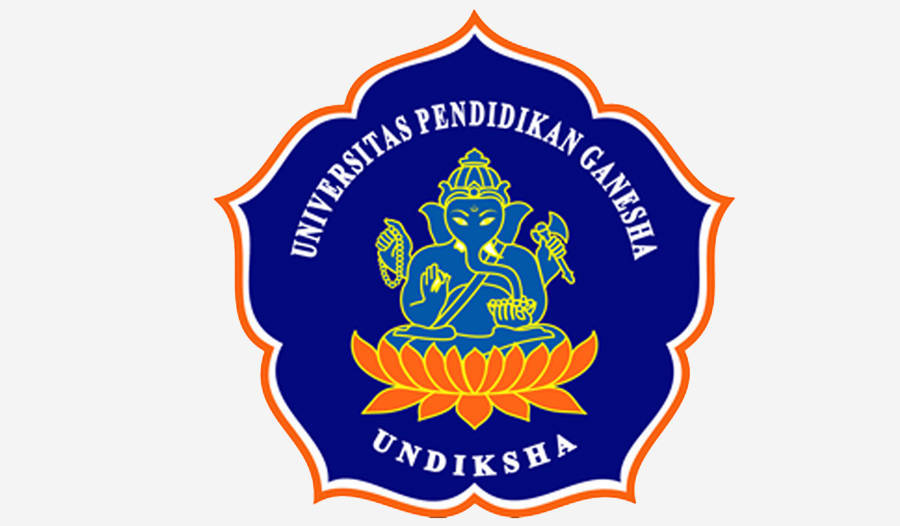
Goal 4 – Quality Education
Lifelong Learning Measures
- Public resources (lifelong learning)
- Public events (lifelong learning)
- Public Vocational Training
- Educational Outreach and Community Engagement
- Lifelong learning access policy
Universitas Pendidikan Ganesha (Undiksha) demonstrates its commitment to making knowledge accessible by extending its educational resources to the wider community. Through initiatives such as Undiksha Berbagi (meaning "Undiksha Sharing"), the university offers free access to selected lectures, educational programs, and online courses. These courses cover a broad range of general topics, allowing individuals from diverse backgrounds to participate based on their interests and needs.
Participants in Undiksha Berbagi not only gain valuable knowledge but also receive certificates upon completing the programs, further enhancing their personal and professional development. Additionally, Undiksha occasionally hosts guest lectures, opening opportunities for the public to engage with expert insights and academic discussions.
Further information :
Undiksha regularly organizes public lectures and community educational events that are accessible both in-person and online. A highlight of these efforts occurs during the university’s anniversary celebrations, where a series of public lectures featuring esteemed speakers are made freely available to the public via the university's YouTube channel. This approach ensures that people from all walks of life, regardless of location, can benefit from academic discourse and expert insights.
Undiksha also engages in broader community outreach through workshops and seminars on topics such as entrepreneurship, health education, environmental sustainability, and technology literacy. These programs are often complemented by partnerships with local organizations and institutions to maximize their reach and impact.
Through these comprehensive efforts, Undiksha not only fosters a culture of learning and development within its community but also actively contributes to Sustainable Development Goal 4 (Quality Education). By sharing its resources and knowledge, Undiksha reaffirms its role as a catalyst for positive change and educational inclusivity.
Universitas Pendidikan Ganesha (Undiksha) actively hosts educational events and training programs accessible to the general public, emphasizing lifelong learning and professional development. These initiatives include executive education programs—short, focused courses designed for individuals not enrolled at the university—that cover a broad range of practical and professional topics.
A notable example is the "Short Course International" program organized by the Faculty of Education, which facilitates cross-cultural interactions among students from various countries. This program not only enriches participants' educational experiences but also fosters global understanding and collaboration.

Additionally, Undiksha offers vocational training sessions aimed at equipping participants with specialized skills and knowledge applicable to their fields or interests. These programs emphasize hands-on learning and are tailored to meet the needs of individuals and local communities, promoting workforce readiness and skill development.
By providing these accessible educational opportunities, Undiksha fosters a culture of inclusivity and growth, contributing to Sustainable Development Goal 4 (Quality Education).
Universitas Pendidikan Ganesha (Undiksha) is deeply committed to extending its educational impact beyond the campus through a variety of outreach activities. These initiatives include tailored lectures, workshops, and demonstrations conducted in local schools and community settings, aimed at fostering knowledge sharing and addressing community needs.
Voluntary student-run schemes form a significant part of these efforts, with students actively participating in programs that promote literacy, environmental awareness, and health education. For example, Undiksha students have organized teaching assistance programs in rural schools and facilitated community workshops on topics such as digital literacy and sustainable practices.
By undertaking these outreach activities, Undiksha strengthens its role as a community-oriented institution, promoting inclusivity, lifelong learning, and sustainable development in alignment with SDG 4 (Quality Education) and SDG 11 (Sustainable Cities and Communities).
Key objective:
Establish the policy in realizing the Improvement of Education Quality (SDG 4)
Implementation Plan:
- Establish the Sustainable Development Goals (SDGs) as one of the strategic programs within Universitas Pendidikan Ganesha.
- Establish Education Quality Improvement as one of the focuses of the Sustainable Development Goals.
- Opens access to all people to improve their academic qualifications regardless of ethnicity, religion, gender, disability, and immigration status.
- Create an annual report on the implementation of programs related to Education Quality Improvement.
Alignment with SDGs:
The policy contributes to SDG 4 by focusing on several key areas:
- Improving the quality of teaching and learning: This includes initiatives to enhance the skills and qualifications of lecturers, develop a more engaging curriculum, and integrate technology into the learning process.
- Promoting access to education: The policy's commitment to open access ensures that individuals from diverse backgrounds have the opportunity to pursue higher education.
- Enhancing lifelong learning: By creating an environment that fosters continuous learning and skill development, Undiksha supports individuals in adapting to a changing world.
Stakeholders Engagement:
University Leadership: Responsible for setting the overall direction, allocating resources, and monitoring progress.
Lecturers and Faculty: Play a crucial role in delivering quality education, conducting research, and contributing to curriculum development.
Students: Direct beneficiaries of the policy, actively participating in the learning process and providing valuable feedback.
Administrative Staff: Support the implementation of the policy by providing essential services and ensuring smooth operations.
External Stakeholders: This can include government agencies, industry partners, NGOs, and alumni who can collaborate in various initiatives related to education quality improvement.







